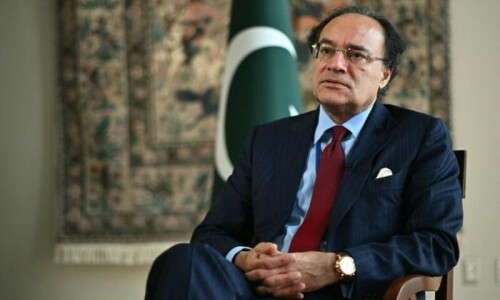ISLAMABAD:The Economic Survey of Pakistan 2023-24, a pre-budget document detailing the country’s major socio-economic achievements during the outgoing fiscal year, has been launched. Finance Minister Muhammad Aurangzeb presented the survey.
Aurangzeb highlighted that during the financial year 2022-23, Pakistan’s GDP contracted, and the rupee depreciated by 29%. He stressed the necessity of entering the IMF programme, describing it as the lender of last resort. “We must go with IMF as there is no plan B,” he said.
The government has renewed its focus on high-potential sectors such as IT, SMEs, mines and minerals, tourism, exports, and agriculture. Aurangzeb noted that without the IMF, the situation would have been significantly different. He emphasised the need to secure the next IMF loan programme, acknowledging the challenges faced by the large-scale manufacturing (LSM) sector due to inflation and high energy rates.
Aurangzeb highlighted agriculture’s positive performance, with a bumper crop contributing significantly to GDP growth. He pointed out that recent years have been marked by persistent challenges since FY 2022.
Revenue collection grew by an unprecedented 30% during the fiscal year, which Aurangzeb attributed to the provinces delivering surpluses, enabling the achievement of the IMF’s nine-month standby arrangement. He noted that the economy embarked on a stabilisation phase in FY 2024, with nearly 30% growth in revenue from the Federal Board of Revenue (FBR) and provincial growth aiding the federation.
The current account deficit (CAD) was projected to be around $6 billion in FY24, but estimates now suggest it will be less than $1 billion by the end of the fiscal year on June 30, potentially as low as $200 million. Workers’ remittances at $3.2 billion are expected to keep the current account in surplus for the full fiscal year.
Aurangzeb credited the government’s administrative steps for curbing smuggling and misuse of Afghan transit trade. He praised the State Bank of Pakistan (SBP) for its role in stabilising the rupee by phasing out weak exchange companies and supporting banks to open exchange companies, marking a structural change.
The economy has experienced moderate growth and a reduction in external pressures. Aurangzeb assured that speculative activity would not revive in the rupee-dollar market, citing administrative measures taken by the SBP.


